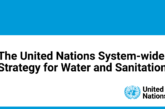 Dr. Ramesh Pokhriyal ‘Nishank’, the Hon’ble Chief Minister of Uttarakhand, has infused new vitality in the state through his dynamism and farsightedness. Under his dynamic leadership, the state has made rapid strides in diverse socio-economic fields. He is inspired with the spirit of nationalism ever since his childhood. He commands a multi-faceted personality which imbibes the facets of a teacher, a writer, a poet and a noble-hearted person. Despite his engagements in active-politics, he has continued his literary journey uninterruptedly. His publications include 11 anthologies of poems, 7 collections of stories and 2 novels have already been published so far; in addition to 4 novels, 3 story collections, a yatra-guide and an anthology of poems that are under- publication. During the short span of his tenure as Chief Minister of Uttarakhand, Dr Nishank has mooted dream projects like Sparsh-Ganga.
Dr. Ramesh Pokhriyal ‘Nishank’, the Hon’ble Chief Minister of Uttarakhand, has infused new vitality in the state through his dynamism and farsightedness. Under his dynamic leadership, the state has made rapid strides in diverse socio-economic fields. He is inspired with the spirit of nationalism ever since his childhood. He commands a multi-faceted personality which imbibes the facets of a teacher, a writer, a poet and a noble-hearted person. Despite his engagements in active-politics, he has continued his literary journey uninterruptedly. His publications include 11 anthologies of poems, 7 collections of stories and 2 novels have already been published so far; in addition to 4 novels, 3 story collections, a yatra-guide and an anthology of poems that are under- publication. During the short span of his tenure as Chief Minister of Uttarakhand, Dr Nishank has mooted dream projects like Sparsh-Ganga.
Dr Arvind Kumar, Editor of this magazine, recently interviewed the Hon’ble Chief Minister in Dehradun. Excerpts from the interview are reproduced here:
FGR: What have been your priorities as Chief Minister for promoting development in the State in recent past?
C.M. : Uttarakhand has a unique celestial beauty to offer to the world. It is blessed with abundant natural resources and wonders – magnificent snow-capped mountains, verdant green hills and flowing holy rivers, a landscape that lends itself to amazing nature, tourism and adventure sports. Add to that its heritage of holy rivers and worship places, making it the spiritual destination of the world. It is these very offerings that the hardworking people of Uttarakhand are keen to promote. Take the ancient science of Ayurveda, for example. The potent Ayurvedic herbs found in the hills of Uttarakhand are special. The hill, Dronagiri, where Hanuman found the elusive herb, life saving still exists here. We intend to study our unique herbal wealth and manufacture Ayurvedic medicines. We have already established ourselves as world class educational hub. Our research and development efforts in this direction will benefit all of humanity. I want Uttarakhand to be capital of world tourism.
FGR : What is your vision 2020 for Uttarakhand?
CM : Vison 2020 is aimed at making this state the most developed state in the entire nation. I want Uttarakhand to be a role model for others states with due emphasis on education, health, tourism, culture.
FGR : What are new plans on anvil for promoting tourism in the State?
CM : Home to great Himalayas, Uttarakhand is heaven on earth. I consider it better than Switzerland and other tourist destinations world wide. We are aware of the fact that a lot of our tourism potential is still untapped. You will agree that we have many gorgeous valleys, alpine meadows and other extremely beautiful places that the world is yet to learn about. We are seriously looking at a refreshing tourism model, one that is of low volume and high return. We want to project ourselves as an eco-friendly state. Auli, which is an unmatched destination for winter sports, particularly skiing, will receive special attention. Some of our tourist spots compare with the best destinations in the world; they only need to be adequately developed. We are creating infrastructure, in particular emphasis is being laid on developing modern infrastructure i.e airports, helipads, ropeways, water sports. There is a world of investment opportunity to be tapped in Uttarakhand.
FGR : What steps are being taken to meet the power shortage in the State?
CM : We are focusing on mini and micro hydro projects so as to maintain complete balance with the fragile Himalayan ecosystem. We want that we should be power surplus state so as to meet the rising need of power in the country.
FGR : How far your prestigious plan ‘Sparsh Ganga’ been successful in meeting the desired targets?
CM : The purpose of Sparsh Ganga is to perform interdisciplinary research in remote sensing, environmental engineering, geology, water chemistry, biological sciences integral to decision-making with regard to the Ganges River and its watershed and to support competent stewardship of this extraordinary resource. This purpose will be pursued through support of scientific research; communication to expand knowledge about the river among the scientific community, policy makers, and the public at large; initiatives to enhance management of the Ganges River System; and education about the River and physical improvements to the riverfront. Following are the key areas:
- To identify and understand various pollution sources of Ganges in Uttarakhand state. High resolution satellite data will be helpful in achieving targets of this task, as these datasets will be very accurate for identifying exact pollution sources. Field sampling of Ganges River is needed at different locations starting from the point of origin. Obviously more sampling is needed at Haridwar, Rishikesh, Badrinath, Devprayag the pilgrimage cities and other urbanized cities which are situated along the banks of river Ganges.
- To understand the impact of industries, population, pesticides and fertilizers and other spiritual activities on Ganges river.
- To understand the reasons of depletion of water resources. This can be obtained by analyzing the indicators like recharge, silt load in river and watershed management.
- Impact of effluents discharged in Ganges through various sources on chemical composition, energy transformation rate and level of heavy metals will be studied at several locations in major pollution centres (i.e. Badrinath, Dev Prayag, Rishikesh, Haridwar) all along the state.
- To understand the impact of tourist season inflow of increased population and other sources rather than anthropogenic can also be mapped.
- To understand the toxicity of the hazardous chemicals present in water and its affect on human health, animals behaviour and vegetation.
- Perform modelling studies
FGR :Uttarakhand is reported to be an environmentally fragile state. There are reports about melting of Himalayan Glaciers which may impact adeversely on the rivers originating from the Himalayas. Does the State Government have some concrete plans in this regard?
CM:Defintely we are working in this direction. We are creating a government body consisting of experts from various disciplines to study various aspects of glaciology. We are in a way getting all related institutes in the state together to conduct research on glaciers in the Himalayan system
FGR: Do you think that more industrialization will help the State in economic terms and in terms of providing employment to the people?
CM:Sure, this does provide us huge opportunities in terms of employment generation. Thanks to rapid industrialization, we are number three in the country as far as GDP growth rate is concerned.
FGR :Do you think that the Centre has been discriminating against the State in allocation of Plan funds?
CM:No, but I think much needs to be done as far as helping the state is concerned. We are a strategically located state sharing international borders with China and Nepal. More than 65% of land is forest covered with rich biodiversity. We are home to lifeline of cultivated land between Haridwar and Calcutta (Ganga and Yamuna). I believe we should be getting special assistance from the Centre for preserving the natural wealth of the country.



